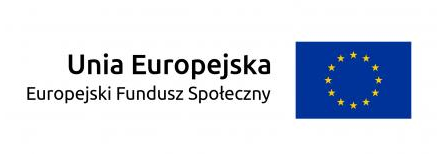Aktualności
"How to Achieve Success? Careers in Europe Throughout the Centuries"
01.06.2015
Konferencje, sesje

Wpis może zawierać nieaktualne dane.
Institute of History The Faculty of History and National Heritage of the Pontifical University of John Paul II in Cracow invites to The II International Conference How to Achieve Success? Careers in Europe Throughout the Centuries.
8-9 October, 2015
At the Pontifical University of John Paul II in Cracow
Bernardyńska Street 3
As the last year’s conference How to Achieve Success? Careers in Europe in XIX and XX Century attracted a lot of participants, we have decided to organize another one this year. During this conference participants will reflect on different paths to success in various fields and in different historical periods – from antiquity until the present day.
Over the centuries it has been possible to observe several brilliant careers of people who have gone down in history.
The origins and flourishing of the early empires in Europe, Christianization, medieval and modern monarchies, history of the papacy and the Church, Crusades and great geographical discoveries, numerous ongoing wars on the continent, activity of Orders – in each of the listed fields there are outstanding figures, who gained recognition and acknowledgement among their contemporaries.
The Europe industrialisation accelerated the processes of social transformations which became well apparent in XIX and XX century. In every period understanding of success and paths to achieve goals were different. Subsequent centuries have demonstrated that there fails to be one formula to make a staggering, although sometimes short-lasting career.
Trying to resolve the issue of how careers were made throughout several thousands of years in Europe, we would like to invite you to the discussion on this topic.
The papers should cover one or several of the given issues: political, ecclesiastical, administrative, military, scientific or sport career, as well as careers in institutions and non-governmental organisations. Referees will answers the question of what determined a career: natural gift, own work, social background, a scandal or perhaps something else? What were the consequences of success for the described person as well as for other people involved? What influence did careers of the particular people have on their homeland and their political-social situation?
The conference is organized by the Institute of History of the Pontifical University of John Paul II in Cracow. Priest Prof. Dr hab. Jacek Urban supervises the conference.
The conference is addressed to independent researchers, students, doctoral candidates of History Faculty and other Humanities faculties.
We are waiting for your applications until August, 31, 2015. We ask to send them to the email address: sukces.historia@upjp2.edu.pl. Please enclose a scan of your tutor/ supervisor’s opinion.
The information of the accepted attendants will be sent by email until 11 September 2015. The conference fee is PLN 150; PLN 100 (doctoral candidates), PLN 50 (students). The funds will cover the cost of publishing the referees’ papers.
We require the articles to follow the regulation of the Ministry of Science and Higher Education, 29 May 2013 on the criteria and evaluation procedure of scientific magazines http://www.bip.nauka.gov.pl/g2/oryginal/2013_06/eb78827ca3f6638d25b5124c3ba02ee8.pdf
The organizers will provide refreshments and three lunches. When requested the organizers may assist at making reservations of hotel or hostel in Cracow (the conference fee does not cover accommodation cost, thus the attendants interested in the above will have to take into account additional expenses). The conference programme includes also visiting the John Paul II Cathedral Museum in Wawel.
Further information is available and will be continuously updated on our website: www.facebook.com/karieryUPJPII
The conference will be open to public.
With kind regards,
Organisation Committee:
ks. prof. dr hab. Jacek Urban
mgr Ewelina Zych
mgr Marlena Sędłak
mgr Albert Sendor
mgr Paweł Kajzar


